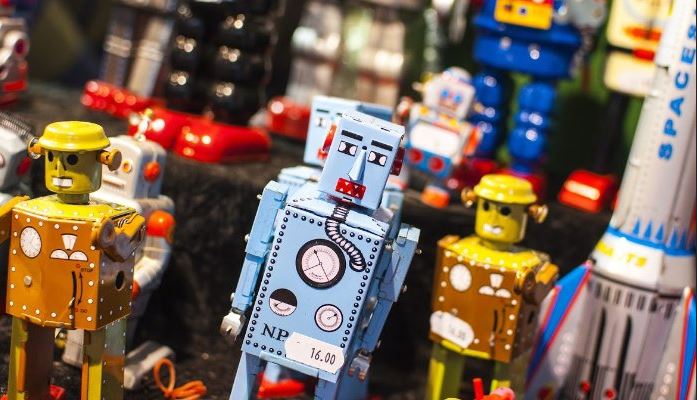The World Economic Forum released its report on the Future of Jobs earlier this week, and several industries were highlighted as big winners in net job growth. Artificial Intelligence was singled out as one of these future change drivers.
The gist? Artificial Intelligence (AI) is not the hydra-headed beast that demolishes jobs as it tramples on the global economy. Nor is it akin to a targeted assault on white collar workers—finally making even educated workers irrelevant.
The WEF report attributes a small negative impact on employment growth to AI (about -1.6%) between 2015 and 2020. Moreover, many of the technologies that will deliver job growth, according to this analysis, will most certainly be integrating AI, which yields net positive employment growth. As the report explains, “AI can now, finally, take over specific activities, but in rare cases does it eliminate a role completely.”
Basically, in terms of AI, this is a story of incremental change. “Advances in machine learning, and natural user interfaces (e.g. voice recognition) are making it possible to automate knowledge-worker tasks that have long been regarded as impossible or impractical for machines to perform,” the report notes.
Notice that it does not say automate knowledge-worker jobs. This report, echoing research that McKinsey recently publicized, suggests that AI can now, finally, take over specific activities, but in rare cases does it eliminate a role completely.
This is a far cry from the doomsday scenarios, and their attendant fear-mongering headlines, that we’ve grown accustomed to.
And still, we think that’s a somewhat gloomy assessment of net job gain or loss.
There’s no doubt that AI will have a huge impact on the way we work. This process has begun and will extend well beyond 2020.
It will enable scientific discoveries that have eluded us.
It will allow us to interact with (and control) our machines via plain english.
And it will save millions of lives by driving at least some of our cars.
As for jobs, some research points to an “automation paradox.” In this week’s piece in The Atlantic, economist James Bessen explained that “it might seem a sure thing that automating a task would reduce employment in an occupation. But that logic ignores some basic economics: Automation reduces the cost of a product or service, and lower prices tend to attract more customers.”
At my own company x.ai we are beginning to see this first hand. (And we are just one example of this phenomenon.) We’ve created an AI personal assistant who schedules meetings for you, Amy Ingram (and her brother Andrew). We’ve built Amy to completely take over the painful email ping pong required to schedule a meeting that most of the 87 million US knowledge workers engage in multiple times per day.
Our mission is to democratize the personal assistant; today, less than 5% of knowledge workers have access to a human personal assistant (or Executive Assistant).
What happens when you eliminate this one maddeningly tedious task for nearly everyone? You free up a lot of time.
Our data suggests (and research has confirmed) that scheduling a single meeting takes about 17 minutes. We know that US knowledge workers schedule roughly 10 billion meetings per year. The math is simple and staggering: that’s 2.8 billion hours—or 70 million work weeks—in a single year, which translates into billions of dollars in economic output.
As a business culture, we decided long ago, that our most expensive employees (the C-suite) should not schedule their own meetings, which is why those workers still have assistants that take on this work. Soon, anyone who schedules their own meetings now—whether they are a business owner, middle manager, or an entry level employee—will be relieved of it too.
Untethering knowledge workers from scheduling will not be instant; virtual personal assistants are just now coming to market. Still, over time, it’s hard to imagine people won’t find much more productive ways to use those hours. Ar
Additionally, developing AI agents, like ours, and the hundreds of others on the horizon, requires plenty of human labor. Besides engineers and data scientists, we’ve hired AI trainers (humans who supervise the machine as it learns), customer success experts, and even, AI Interaction designers.
AI will be an agent of change. It will take over repetitive, rule bound work that computers are so good at. And it will open up opportunities for people to do meaningful work that requires the qualities humans have in abundance: creativity, empathy, and wisdom.
This article was originally posted on the x.ai blog.
 Nordic Startup News Early Stage Startup News From The Nordics
Nordic Startup News Early Stage Startup News From The Nordics


